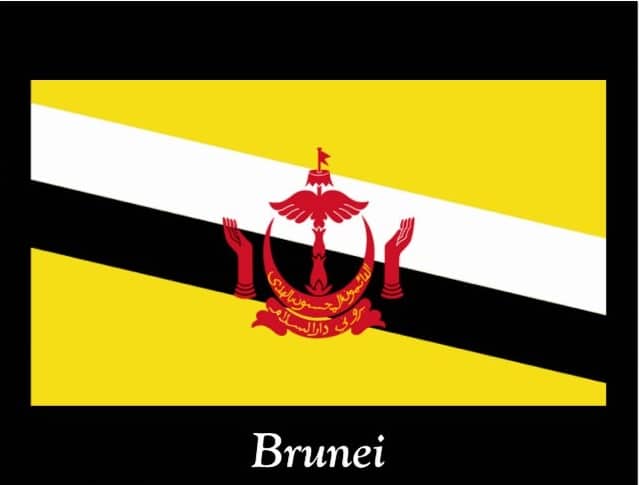Headlines
Brunei: A Brief History of Its Founding and Rise to Power

Brunei, a small country located on the north coast of the island of Borneo, has a rich and fascinating history that dates back to the 6th century CE. The region was under the influence of Indianized kingdoms and empires for much of its history. The history of Brunei before the arrival of Magellan’s ships in 1519-1522 CE is based on speculation, the interpretation of Chinese sources, and local legends.
See Population, Official Language And More…

Brunei
According to local historiography, Brunei was founded by Awang Alak Betatar, later to be Sultan Muhammad Shah, reigning around AD 1400. He moved from Garang in the Temburong District to the Brunei River estuary, discovering Brunei. According to legend, upon landing he exclaimed, Baru nah (loosely translated as “that’s it!”. However, according to the official version of events, mainly the national epic poem Syair Awang Semaun, Brunei was founded by a band of fourteen saudara (brothers and first cousins), who eventually settled in the Brunei river near the present capital and chose one of their number as the first ruler.
The Bruneian Empire was formed in the fifteenth century and was a thalassocracy that covered the northern part of Borneo and the southern Philippines. Local scholars assume that Islamization of Brunei started in the fifteenth century with the formation of this empire. At its peak, it was one of the most powerful empires in Southeast Asia. However, at the end of the seventeenth century, Brunei entered a period of decline brought on by civil war, piracy, and European colonial expansion. Later, there was a brief war with Spain in which Brunei lost Manila and evacuated their capital for a brief period until the Spanish withdrew. The empire lost much of its territory with the arrival of Western powers such as Spain in the Philippines and Britain in Labuan, Sarawak, and North Borneo. The decline of the Bruneian Empire accelerated in the nineteenth century when Brunei gave much of its territory to White Rajahs of Sarawak resulting in its current small landmass and separation into two parts.
In 1888, Sultan Hashim Jalilul Alam Aqamaddin appealed to Britain to stop further annexation. In that same year, Britain signed a “Treaty of Protection” and made Brunei a British protectorate until 1984 when it gained independence and prospered due to oil discovery.
Certainly! Brunei, a small country located on the north coast of the island of Borneo, has a rich and fascinating history that dates back to the 6th century CE. The region was under the influence of Indianized kingdoms and empires for much of its history. According to local historiography, Brunei was founded by Awang Alak Betatar, later to be Sultan Muhammad Shah, reigning around AD 1400. He moved from Garang in the Temburong District to the Brunei River estuary, discovering Brunei. According to legend, upon landing he exclaimed, Baru nah (loosely translated as “that’s it!”). However, according to the official version of events, mainly the national epic poem Syair Awang Semaun, Brunei was founded by a band of fourteen saudara (brothers and first cousins), who eventually settled in the Brunei river near the present capital and chose one of their number as the first ruler.
The Bruneian Empire was formed in the fifteenth century and was a thalassocracy that covered the northern part of Borneo and the southern Philippines. Local scholars assume that Islamization of Brunei started in the fifteenth century with the formation of this empire. At its peak, it was one of the most powerful empires in Southeast Asia. However, at the end of the seventeenth century, Brunei entered a period of decline brought on by civil war, piracy, and European colonial expansion. Later, there was a brief war with Spain in which Brunei lost Manila and evacuated their capital for a brief period until the Spanish withdrew. The empire lost much of its territory with the arrival of Western powers such as Spain in the Philippines and Britain in Labuan, Sarawak, and North Borneo. The decline of the Bruneian Empire accelerated in the nineteenth century when Brunei gave much of its territory to White Rajahs of Sarawak resulting in its current small landmass and separation into two parts.
In 1888, Sultan Hashim Jalilul Alam Aqamaddin appealed to Britain to stop further annexation. In that same year, Britain signed a “Treaty of Protection” and made Brunei a British protectorate until 1984 when it gained independence and prospered due to oil discovery.





